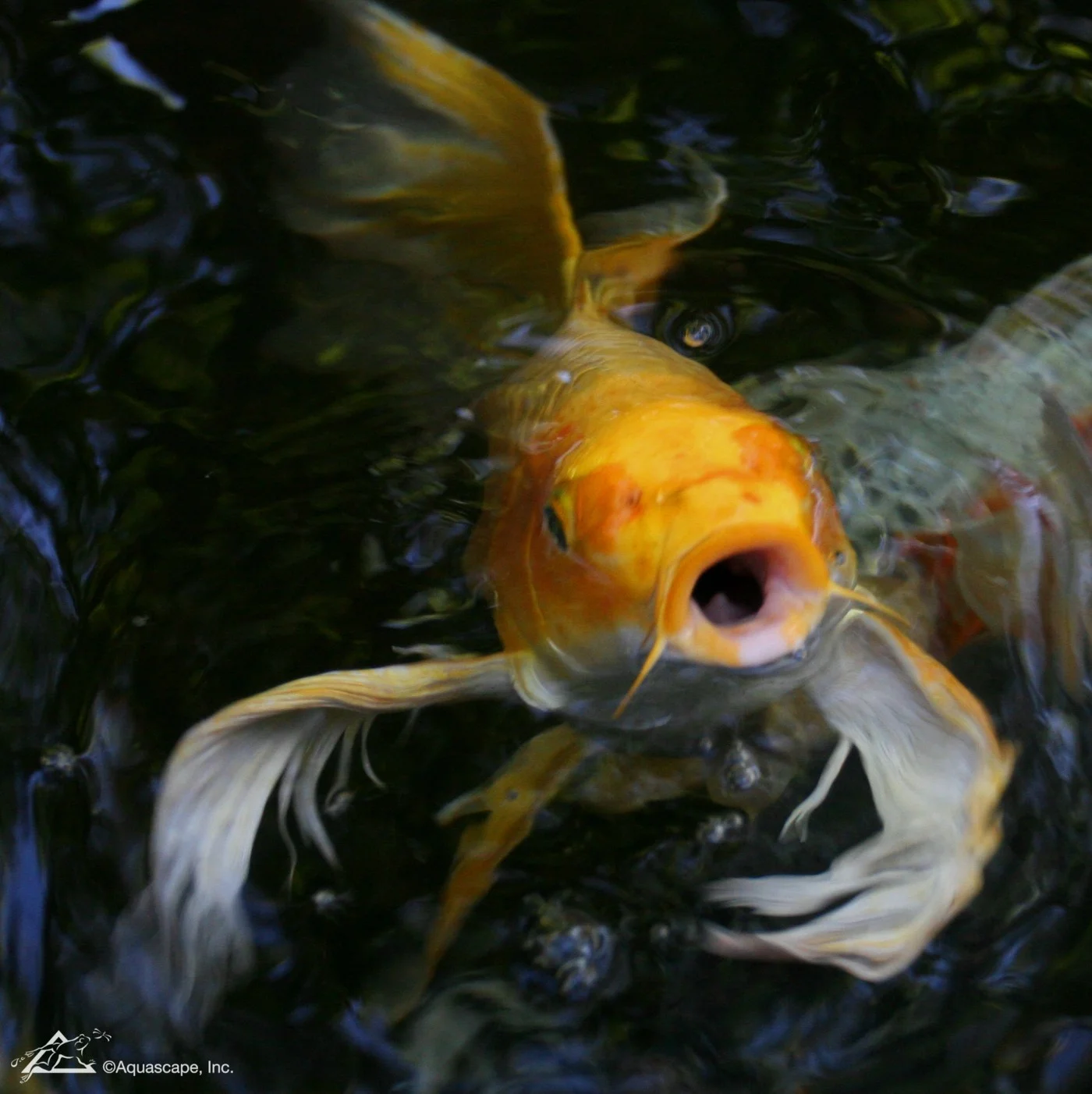Feeding Pond Fish In The Summer
One of the best things about having a pond is the pleasure of watching the fish rush to the surface of the pond at feeding time. You throw in several pellets and they all come scrambling to eat! Feeding pond fish in the summer is an activity the whole family will enjoy, here is few pointers to keep in mind.

1. Feed koi and pond fish a high-quality food
Not all fish food is created equal. Studies have been done comparing the digestion of protein from various sources in fish. The result? Fish proteins are the best digested and assimilated by fish. Makes sense when you consider that fish eat other fish in oceans and lakes.
When shopping for fish food, check the label for protein sources such as blood meal, fish meal, squid meal, shrimp meal, herring meal, or other aquaculture protein as the first ingredients. Aquascape Premium Fish Foods include high-quality fish protein as a top ingredient.
2. Follow the 5-minute rule
Don’t feed fish more than they can eat in about 5 minutes. They’ll be able to consume what they need in that amount of time, although larger fish need more food than small ones. If you notice some of your larger koi eating your waterlilies or plants, you should try feeding them a bit more. But remember, uneaten fish food will simply float into your skimmer where it decomposes. Not to mention, the more you end up feeding pond fish, the more waste they’ll produce which can create an imbalance in your pond’s ecosystem.
3. You don’t have to feed your fish
If you’re going on vacation, you don’t need to worry about your fish becoming malnourished during your absence. Fish eat algae and other beneficial bacteria off the rocks and gravel in your pond. Algae are nutritive. In fact, humans have discovered that eating spirulina (which is nothing but algae) has healthful benefits to the immune system and is packed with vitamins. Koi and pond fish derive identical benefits and it’s not uncommon for spirulina to be added to koi food.
4. Store fish food properly
It’s best not to buy more fish food than you need in one season, unless of course you don’t mind storing large bags of food in the refrigerator over the winter. You don’t want to freeze fish food because freezing damages the fats in the food and then the fat-soluble vitamins are compromised.
If your pond fish food begins to smell funny develops a fuzz on it, changes color, sticks together, or crumbles down, it should be discarded. Giving your finned friends bad food can cause a whole host of problems with your fish. Much of what grows in fish foods produces what are known as aflatoxins, which can cause injury, deficiency, and even broken backs in the fish that eat it.
5. It’s okay to give your pond fish summer snacks
Although it’s not necessary, it can be fun to give your fish a summer snack from time to time. Koi in particular will enjoy watermelon, orange slices, peas, and even Honey Nut Cheerios. Can you envision your kids and koi snacking on the cereal at the same time? Be advised that peas will sink to the bottom of the pond so be careful to just toss in a few and be sure the fish are there ready to gobble them up.
6. Establish a feeding schedule
You’ll have more success feeding pond fish in the summer if you follow a regular feeding schedule. The fish get used to seeing you at the same time each day and you’ll be more successful at getting them to eat out of your hand. It takes patience and time but can be so enjoyable to hand feed your finned friends.
So remember, you don’t have to feed your fish but if you do, always choose a high-quality fish food to keep your pets healthy and happy.
